Fees may be a way for sellers to offer a low “landing price” to attract buyers in, but then make it up by the time of final sale by tacking on extra charges, but not all surcharges are created equal. The seller’s reputation impacts whether buyers will pull the trigger or not, according to a new study.
studies

People Think Coupon Users Are Cheapskates, Unless You're Hot
If you use coupons in a store, your fellow shoppers are probably negatively judging you as being cheap, according to a new study. The stigma extends to those around the coupon redeemer as well. However, if you’re hot, you get a reprieve. The study had people watch consumers cash coupons, and then interviewed the participants afterward for their reaction. The stigma is lessened if you don’t know the person using the coupon, the coupon is of high value, if they’re in a different line, and if the coupon-user is a hottie. Researchers proposed that the reason for the coupon-hating is “the modern consumer tends to prize status and luxury over thrift.”

Study: The Poorer You Feel, The More Lottery Tickets You Buy
Very Short List notes that “America’s lotto kiosks are currently reporting heretofore unheard-of earnings,” despite the average rate of return—53%—being less than slot machines. Researchers at Carnegie Mellon recently completed a study in which they primed people to feel relatively poor, then offered them a chance to buy lottery tickets, and the results suggest that the poorer you feel, the more likely you’ll waste your money on a lottery.

BPA Levels Higher In Those With Heart Disease Or Diabetes
those with the largest amount of BPA in their urine had nearly three times the risk of heart disease and more than twice the risk of diabetes as those who had the lowest levels.

Confirmed: BPA Will Harm Your Monkey
Researchers at the Yale School of Medicine have linked [BPA] to problems with brain function and mood disorders in monkeys—the first time the chemical has been connected to health problems in primates.

Sadness Makes You Spend More
Is [it] a biologically driven disease of the brain, a learned habit run amok, an addiction in its own right or a symptom of the other dysfunctions—most notably depression—that so often accompany it?
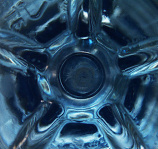
FDA Declares Bisphenol A Safe
Bisphenol A, or BPA, is the chemical used in various plastic bottles and can linings that Canada recently banned, consumers in Arkansas, California, and Ohio have filed lawsuits over, and Playtex and Nalgene have stopped using. The fear is that it’s toxic—studies on animals in Canada have shown that it’s damaging, and some tests in the U.S. suggest it’s harmful to humans as well. Critics of the anti-BPA movement point out that the human studies rely on super high dosages that never occur in real life, and that making safety decisions based on the general public’s fears isn’t exactly scientific.

2008 Consumer Action Credit Card Survey Declares Credit Cards 'Really !@$% Evil!'
Credit cards are so much worse than you thought, according to the 2008 Consumer Action credit card survey. Creditors have carte blanche to do pretty much whatever they want, including randomly changing terms, conditions, and rates, even to cardholders with perfect payment histories and pristine credit scores.

Study: Baby Boomers Are "Savvy Shoppers" Who Brand-Jump More Than Younger Generations
It’s time once again to play Categorize The Shopping Public, this time using a survey commissioned by TV Land to convince advertisers that its Boomer-centric programming is relevant. If you or someone you know is between the ages of 40-59, you won’t want to miss this very important message—but to summarize it for the ADD crowd, it seems younger folks are (slightly) more likely to choose a brand based on fashion and hype, whereas Boomers are (slightly) less brand-loyal and seek greater value. This runs counter to the conventional wisdom that younger consumers are savvier shoppers, and gives Boomers something to gloat over—before they forget what it is they’re gloating about. Ha ha! Old people are so old!

Eat Less, Live Longer
Scientists say that if you start eating 15% less food by age 25, you could add 4.5 years to your life. The theory is that it lowers metabolic rate and generates fewer “free radicals” in the body. Makes sense, run an engine at a lower overall speed and you’ll get a longer life out of it. Practitioners of the Calorie Restriction diet believe in it, and some think it will lead to eternal life. The tradeoff is that your skin is translucent. Everything in moderation, my friends.
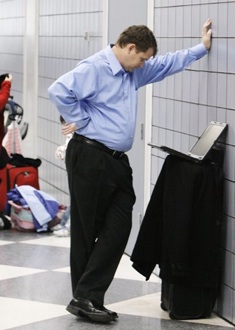
Travelers Leave 12,000 Laptops In Airports Every Week
Absentminded travelers flummoxed by airport security leave 12,000 laptops in airports every single week. Only 30% are ever recovered.

Is Your Sunblock Effective?
Yesterday several news outlets published the results of a study that said “four out of five brand-name sunscreens either provide inadequate sun protection or contain chemicals that may be unsafe.” The report comes from the Environmental Working Group (EWG) and has been heavily criticized by sunblock makers, although their complaints are of the general sort (“they don’t understand sunblock!”) or vaguely hysterical (“they’ll convince people to stop using sunblock!”). We don’t know how valid the study ultimately is, but here are the basics—and regardless of the more sensational claims, their list of the best sunblocks may help you when choosing a product.
../../../..//2008/07/01/a-consumer-reports-study-finds/
A Consumer Reports study finds that 79% of consumers surveyed say they plan on buying a car with better fuel economy. [Consumer Reports]

It's Official: Early Adopters Are Jackasses
A new study by Mindset Media and Nielsen Online has created a better profile of gadget lovers who tend to buy new technology early and often—and it’s no longer believed that they’re just “wealthy young males.” Instead, the early adopter type tends to score high in leadership and assertiveness, but low in modesty.

81% Of Americans Hate Mandatory Binding Arbitration
According to science, even the President is more popular than mandatory binding arbitration. A recent poll shows that Americans hate everything about the extrajudicial resolution system, from its inescapable omnipresence, to its unappealable decisions that rob consumers of their day in court. The poll provides a refreshing contrast to a different study commissioned by the U.S. Chamber of Commerce, which found that Americans love mandatory binding arbitration more than pie.
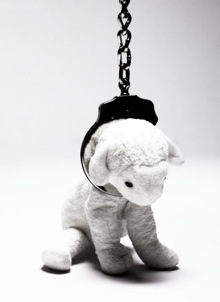
If You Happen To Prevail In Arbitration, Get Ready To Lose On Appeal
Arbitration is even worse than we thought. We already knew that consumers lost 94% of the extra-judicial proceedings, but new data shows that the few who manage prevail are likely to have their wins overturned on appeal.
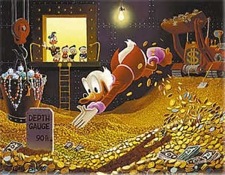
Money Can Apparently Buy Happiness
Feeling down? Money might help, according to Betsey Stevenson and Justin Wolfers. The Wharton economists released a paper arguing that countries with higher gross domestic products have happier citizens. The study shatters the conventional wisdom known as the Easterlin Paradox, which holds that GDP and happiness are largely unrelated.
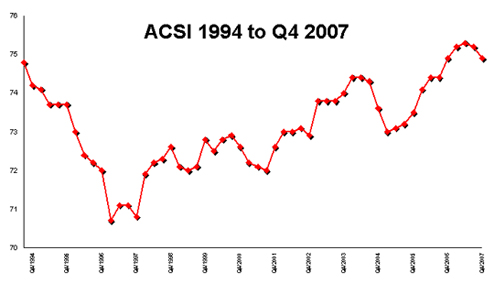
American Customer Satisfaction Drops
The American Customer Satisfaction Index (ACSI) dropped again for the second consecutive quarter to 74.9. Why does this matter? “When customer satisfaction declines, consumers have less enthusiasm for repeating experiences that no longer provide the same gratification,” says Professor Claes Fornell. AKA, they’ll be spending less money.


